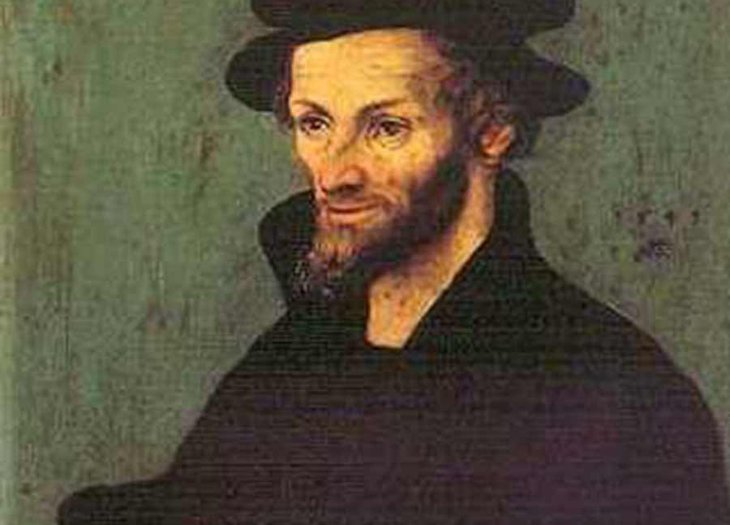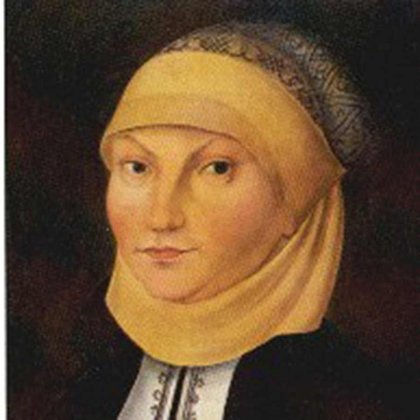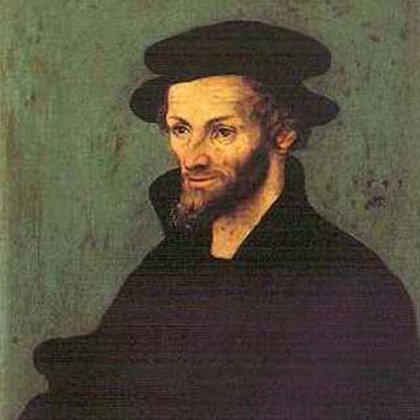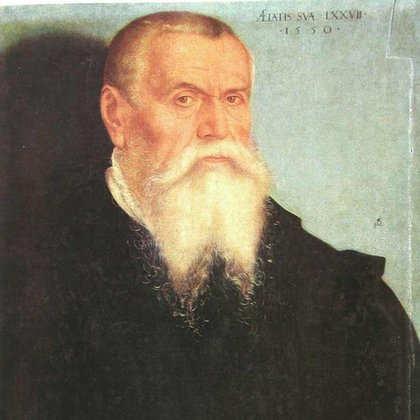
The life of Philipp Melanchthon
Philipp Melanchthon was born in Bretten (near Karlsruhe) on February 16, 1497, the son of the armorer and armorer's smith Georg Schwarzerdt. Already by his name change one recognizes his preference for old languages, because Melanchthon is the gräzisierte version of his family name Schwarzerdt.
After the death of his father, Philipp Melanchthon left his hometown to attend Latin school in Pforzheim. Already here, Philipp Melanchthon was supported and encouraged in learning the ancient languages (Greek and Hebrew) not only by the school's rector, Simmler, but also by Joahnnes Reuchlin. On October 14, 1509, Melanchthon's name appears in the registers of the University of Heidelberg, where he received the degree of Baccalaureus artium on June 10, 1511.
In September 1512, Melanchthon continued his studies in Tübingen, and, not quite seventeen years old, he earned the degree of Magister on January 25, 1514. As a Magister, he was required to teach, and his first major scholarly achievement was editing the complete edition of Terence's comedies.
Appointment to the University of Wittenberg
On the recommendation of Johannes Reuchlin, Philip Melanchthon was appointed to Wittenberg University by Frederick the Wise in 1518. As a professor of Greek, he was concerned not only with the ancient languages, but also with mathematics, astronomy and astrology.
On August 28, 1518, he delivered his inaugural address, "De corrigendis adolescentiae studiis," in the Castle Church at Wittenberg, which made a lasting impression on the people of Wittenberg and Luther. He spoke about a university reform and thus set in motion a study reform that gave rise to a new teaching system in the years that followed.
In Wittenberg, theology gained importance for the young professor, and so Melanchthon underwent appropriate studies. On September 19, 1519, he earned the degree of baccalaureus biblicus in Wittenberg and thereafter also gave biblical lectures at Wittenberg University.
The teacher of Germany
Outstanding theological works written by him are the Loci communes and the Confessio Augustana (first official Protestant confession of faith). Philipp Melanchthon earned great merits by reorganizing and shaping the educational system. Melanchthon was tireless in his advice and action in the establishment of municipal schools and in the reestablishment and reformation of the universities. Through him, Wittenberg University became a model for Protestant universities. Even during his lifetime, Philipp Melanchthon was called Praeceptor Germaniae (Teacher of Germany).
In Wittenberg, Melanchthon entered into the bond of marriage. He married Katharina Krapp, daughter of the mayor and tailor Hans Krapp. The marriage produced four children.
Philipp Melanchthon's life was completed in Wittenberg. He died on April 19, 1560 in his study in today's Melanchthon House, which since 1997 has been restored to its full late 19th-century appearance, making a tour of the house and garden a special experience. The last resting place of the reformer Philip Melanchthon is in the castle church next to his companion Martin Luther.



